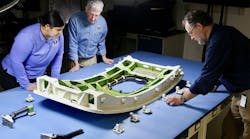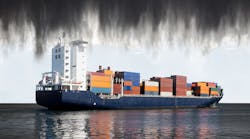Over 250 protestors rallied outside of the Pacific Steel Casting s plant in November. Environmental activists, West Berkeley, CA residents, parents and children protested the company, which has been the source of charges of emitting noxious fumes, which has failed to release a legally-mandated Health Risk Assessment to test air emissions at the foundry, installed a $2 million pollution control system in October. But the residents still claim hazardous emissions and odors still stem from the plant. PSC is currently facing three lawsuits. Both PSC and Berkeley Toxics Manager Nabil Al-Hadithy have noted that many buildings are old enough to contain lead-based paint, which could have influenced the results.
Among four Arizona companies that voluntarily disclosed and corrected environmental violations and had penalties waived by the U.S. EPA was Imsamet Inc., an aluminum recycler in Goodyear, AZ. The company faced a fine of $73,864 for failing to report ammonia between 2000-03. Imsamet discovered the violations on its own and reported the violations to the EPA. Because the company satisfied all of the EPA s conditions of self-disclosure policies, and there was no economic benefit gained, the agency waived potential penalties.
California governor Arnold Schwartzenegger signed bill AB 1953 in late September, limiting the among of lead used in metal pipes, fixtures, and fittings in potable water systems, despite efforts by the
U.S. metalcasting industry to delay the decision. Prior to the bill becoming law, the AFS issued a letter to Gov. Schwartzenegger, asking to delay signing the bill. The AFS pointed out several points, including insufficient evidence showing no-lead materials are sustainable; the continued availability of currently accepted substitute materials, such as bismuth; and the idea that no-lead materials in potable water applications are not the only solution. According to chairman of the AFS Copper Alloy Division, Mike Jones, the California legislature has decided upon a different prescriptive approach that leaves many questions and concerns. The history and experience with the materials that may meet the California criteria is limited and there are still questions on these materials.








